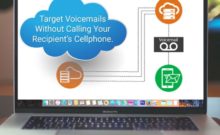Debt collectors and telemarketers often face TCPA allegations – meritorious or not. For debt collectors, this is true even though debt collection calls are subject only to the “prior express consent” standard rather than the more strict, “prior express written consent” standard, applicable to other prerecorded calls to mobile phones. However, telemarketers and debt collectors alike have begun to use ringless voicemail technology to leave voicemail messages on phones without placing a traditional call.
The big question then is whether straight to voicemail constitutes a call for TCPA purposes, and, according to a recent FCC Public Notice, industry participants may soon receive an answer.
Earlier this year, All About the Message LLC (AATM) filed a petition for a declaratory ruling before the Federal Communications Commission (FCC), requesting that the FCC issue a rule that would declare that delivering a voice message directly to a consumer’s voicemail box does not constitute a “call” that is subject to the Telephone Consumer Protection Act’s (TCPA) general prohibition against the use of auto-dialers or pre-recorded voice messages (absent appropriate consent). AATM’s petition follows a similar FCC petition filed by VoAPPs, Inc. on July 31, 2014. There, VoAPPs argued that leaving a voice message directly in the consumer’s mailbox does not constitute a “call” subject to the TCPA, because such a message does not cause the type of disruption that the TCPA was enacted to curtail. The FCC has not yet resolved VoAPPs’ 2014 petition.
If the FCC declares that ringless voicemail technology is not a “call” under the TCPA, it may open a new marketing avenue for creative telemarketers. The FCC has issued a Public Notice seeking comments by May 18, 2017. This, of course, would also benefit debt collectors looking to minimize TCPA risk, as most courts have determined that debt-collection calls made to cellular telephones using an automatic telephone dialing system or a prerecorded voice violate the TCPA if the called party has not provided their “prior express consent” to receiving such calls.
Last August, the FCC published new rules exempting autodialed calls “made solely to collect a debt owed to or guaranteed by the United States” from the Telephone Consumer Protection Act’s prior express consent requirement. This exemption, however, does not apply if the debt is not owed to or guaranteed by the United States.






